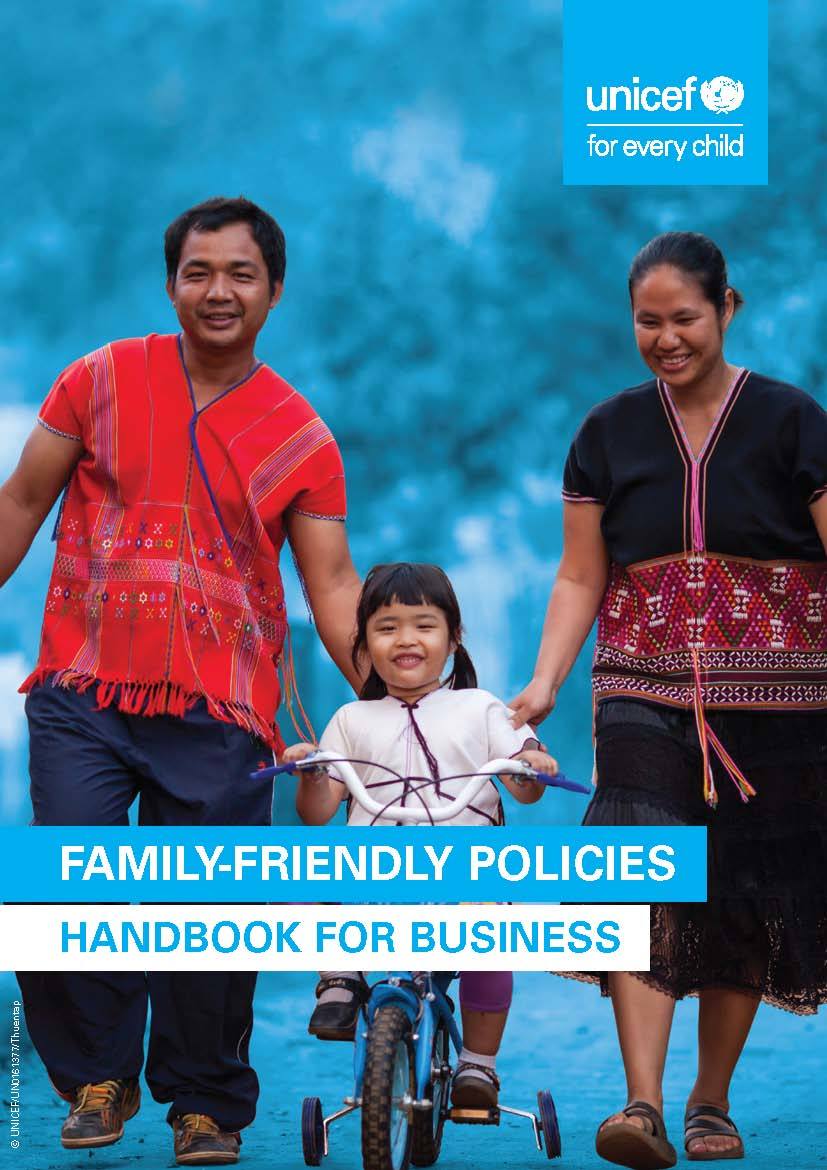Family friendly-policies handbook for businesses
-
During the first 1,000 days of a child’s life, parents
have a once-in-a-lifetime opportunity to build a
baby’s brain and shape a child’s ability to learn and
flourish. As their children grow, fathers and mothers
continue to have the most important job in the
world: building the foundations for life in the future.
When businesses, as well as governments, invest
in policies that give parents the support they need
to raise happy and healthy children, societies and
economies can thrive.1 Companies, on their own and in collaboration with
other stakeholders, have a pivotal role in making
the workplace family-friendly.2 To address the needs
of children, parents and other caregivers, familyfriendly
policies feature:
3 Paid parental leave, covering both mothers and
fathers to care for young children.
4 Flexible work arrangements that offer choices on
when and where workers fulfil their
responsibilities, such as adjusted working hours,
compressing the work week, or working from
home.
5 Protections for pregnant women, including job
security, and support for breastfeeding mothers,
including paid breaks and adequate facilities to
accommodate breastfeeding at work.
3 Access to affordable, quality childcare, from the
end of parental leave to children’s entry into the
first grade of school.6 Child benefits, which include regular cash
transfers as part of a government-sponsored
system of social protection and social services,
and can be supported by public-private
partnerships between government, local industry
associations and communities to mobilize
additional resources.As noted throughout the handbook, these
measures can save lives, increase health and
well-being, and reduce health-care costs and
absenteeism. While the benefits and the need were
already evident, as work and family life have been
upended in the context of COVID-19, the timetable
for fortifying family-friendly policies and expediting
new programmes must be greatly accelerated.Though many companies have adopted some or
all of these policies, they are not yet a reality for
most parents around the world. Only 30 per cent of countries, for example, offer maternity leave
that meets International Labour Organization (ILO)
standards – and two-thirds of children under age 1
live in countries where their fathers are not entitled
by law to a single day of paid paternity leave.3
And the needs become increasingly apparent for
workers outside the formal sector. More than 60
per cent of the global workforce, or 2 billion people,
earn their living in the informal economy,4 which
is often unpredictable, less regulated and poorly
covered by social protection.

